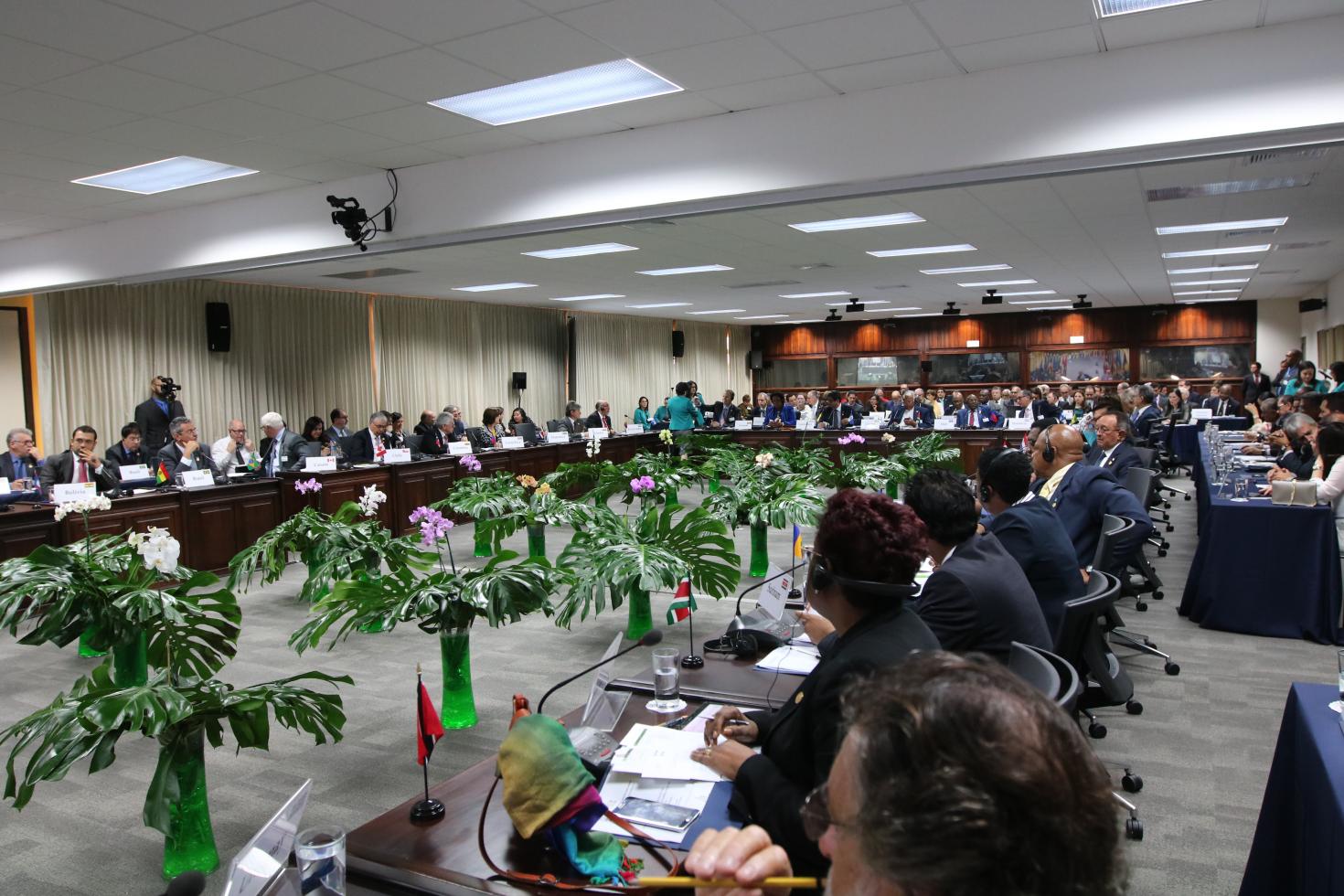Experts highlighted the fundamental role of Codex in helping countries produce and trade safe food.

San Jose, 7 November 2017 (IICA). The Ministers of Agriculture of the Americas in attendance at the Nineteenth Regular Meeting of the Inter-American Board of Agriculture (IABA) discussed the contribution of Codex Alimentarius to agriculture and trade.
At the request of the government of Canada, the ministers reflected on the importance of Codex in promoting food safety and facilitating international trade.
The session, which was held at the headquarters of the Inter-American Institute for Cooperation on Agriculture (IICA), was opened by Codex Chairperson Guilherme Antonio da Costa Jr., who referred to Codex as the multilateral organization that is most important to food safety and international trade in food products.
Da Costa emphasized the relevance of Codex in today’s international context, which is characterized by an increasing demand for food, greater pressure on limited resources, complex food supply chains, increasing international trade in food and raw materials, as well as changes in the eating habits of the global population.
The participation of the Americas in this context is noteworthy, given that the region accounts for close to 40% of global food production. Current estimates suggest that net trade in agricultural products from Latin America will reach 60 billion dollars by 2024.
Michel Leporati Néron, Chairperson of the Codex Coordinating Committee for Latin America and the Caribbean (CCLAC), highlighted the scientific basis of Codex standards and guidelines, as well as their harmonization at the international level and the ease with which they can be adopted at the national level.
“Never in the history of humanity has food been as safe as it is today. However, we have never been as concerned about food safety as we are today,” said Leporati before indicating that 600 million foodborne diseases are reported each year.
“Codex provides guidelines that can be followed to protect consumer health and ensure fair practices in the food trade,” he added.
Following up on this theme, Brent Wilson, Deputy Director of the Technical Trade Policy Division at Agriculture and Agri-Food Canada, encouraged the ministers to work together to strengthen Codex. He underscored the role of Codex in fostering dialogue, establishing clear rules and providing reliable scientific advice.

“Canada promotes transparent dialogue and values the independence of Codex. We must work together to facilitate international trade and foster transparency in trade, to enable all countries to compete at the same level,” he stated.
Lloyd Day, Deputy Director General of IICA, stated that “over the past four years, IICA has contributed to increasing active and effective participation of its member countries in Codex Alimentarius, to ensure that they benefit from the work conducted by this international body for standardization.”
He mentioned that 189 technical specialists from Latin America and the Caribbean had participated in 30 Codex Committee meetings, which had allowed for ensuring adequate representation of the region in critical negotiations on development standards. He also highlighted IICA’s organization of technical Codex colloquia for the analysis of key topics, as well as its implementation of a program for fostering South-South cooperation, which had more than 700 participants from 15 beneficiary countries.
Day also expressed his appreciation to the United States Department of Agriculture and the Government of Canada for providing financial support for IICA’s work on Codex in the Americas.
More information:
Robert Ahern, Leader of the Agricultural Health and Food Safety at IICA
Lloyd Day, Deputy Director General of IICA











